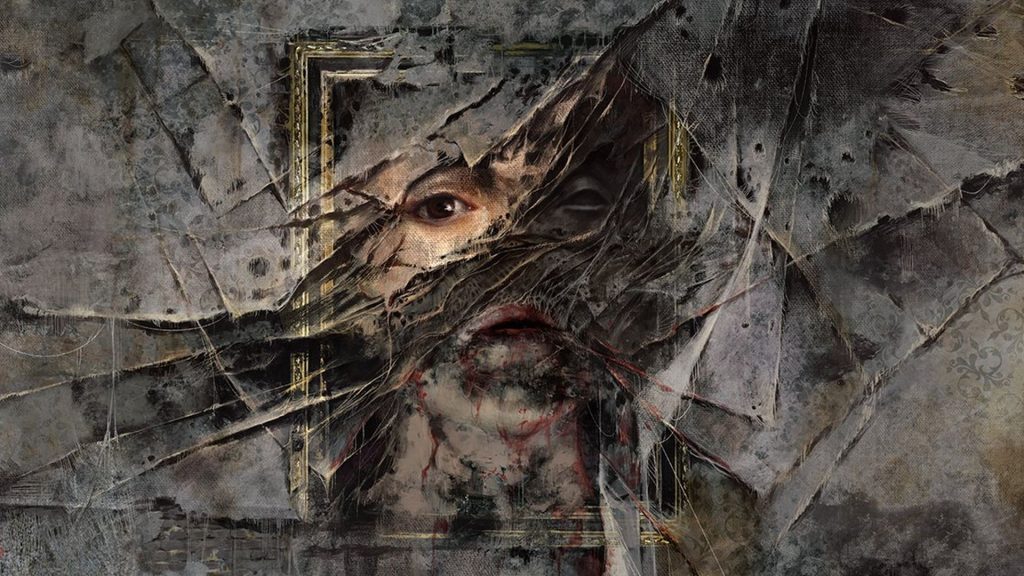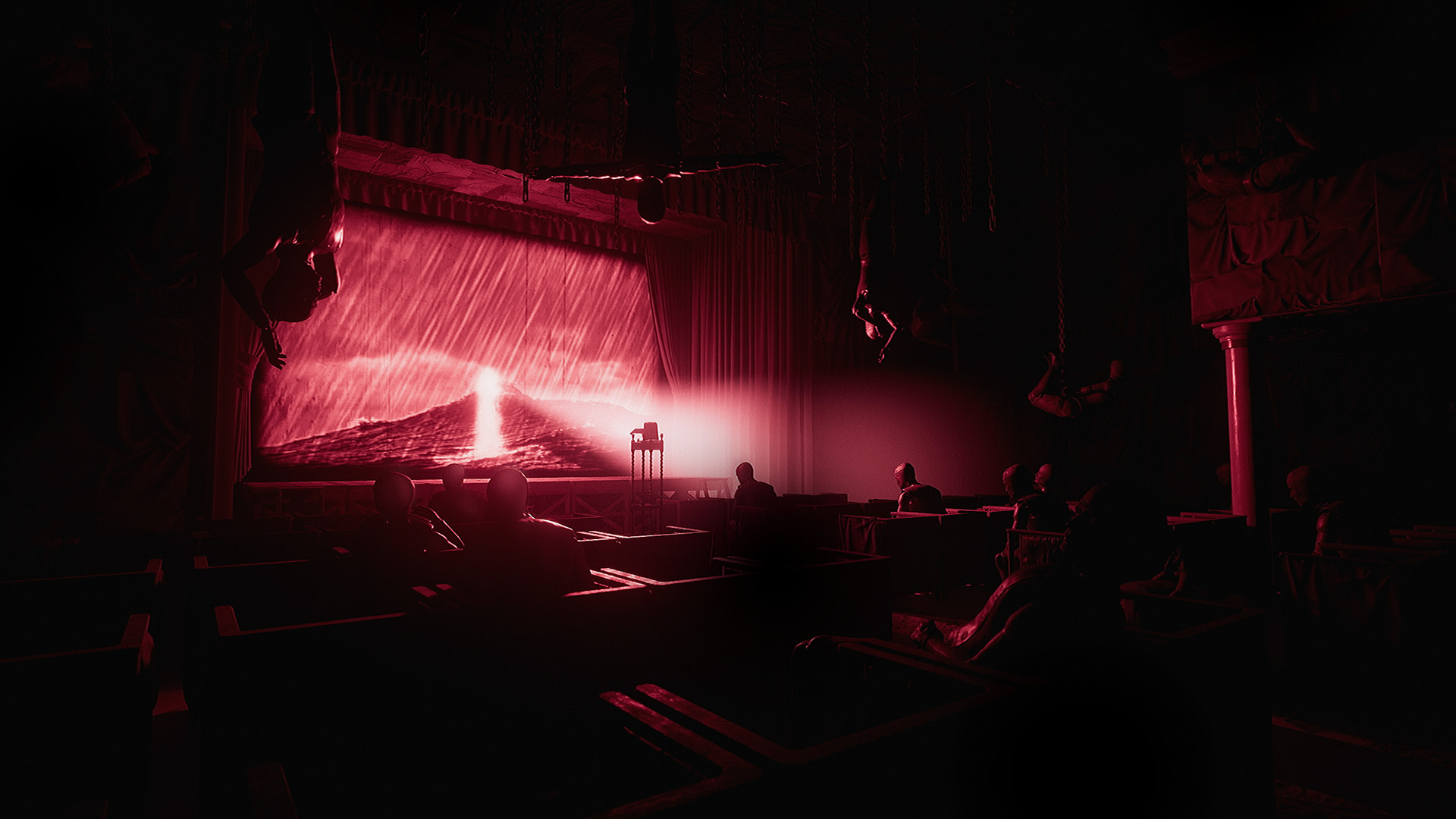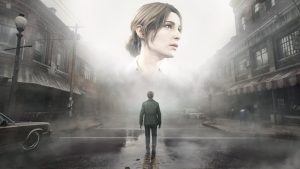
Back in the mid-2010s, in the aftermath of P.T.’s nuking and Silent Hills’ demise, the games industry was hurting, constantly feeling the phantom pain of an incredible, genre-changing psychological horror game that would only ever exist in our minds. Many teams, big and small (mostly small, because horror was still incredibly niche back then) rose up to fill that void, deciding to do it themselves like indie versions of Thanos, and delivered a cavalcade of psychological horror experiences characterized by slowly walking down collections of hallways and grappling with the strange concoctions of a tortured, broken mind.
Chief among them, for a great many people, was Bloober Team’s original Layers of Fear, which may not have set the world on fire, but became an overnight sensation thanks to its brief yet solid offerings nonetheless. And though Bloober has expanded rapidly since then and delivered a string of other horror experiences (and is now even developing a remake of the legendary Silent Hill 2), for many of the developer’s fans, Layers of Fear (and its sequel) still hold a special place in the heart.
"This is, on paper, the definitive Layers of Fear experience- and though there’s plenty here that many will find impressive, by that same token, the game isn’t without issues that drag the experience down."
Now, in collaboration with Anshar Studios, Bloober Team has gone back to Layers of Fear to deliver a new game, one that is neither remake nor remaster nor sequel. The new Layers of Fear combines, reimagines, and recontextualizes the existing stories of the Painter, his daughter, and the Actor, while also adding in new stories of its own told from the perspective of the Painter’s wife (i.e., the Musician) and a new character in the Writer. It is, on paper, the definitive Layers of Fear experience- and though there’s plenty here that many will find impressive, by that same token, the game isn’t without issues that drag the experience down.
Let’s start with the good stuff, because the most prominent examples there will instantly impress you, and will continue to do so until you’re done playing the game. I am, of course, talking about the visuals. Layers of Fear has been built in Unreal Engine 5 and leverages technological advancements that the developers didn’t have at their disposal when past instalments were made. The end result is a visual stunner- the lighting is gorgeous and used to excellent effect every step of the way, environments are crammed full of a startling level of detail, and every single pixel of the experience oozes atmosphere. Art design and technical achievements work in perfect harmony here, creating a beautiful game that never fails to impress with its visual prowess. If this is any indication of what Bloober Team will be able to achieve with the Silent Hill 2 remake, there’s every reason to be excited about it, at least on a visual and technical level.
Equally as impressive is the audio design, which is an aspect that can make or break a horror game. While the effectiveness of Layers of Fear’s attempts to scare you is up for debate, it never fails to contribute to the atmosphere with its excellent audio. From a furious storm lashing down outside the windows of the Painter’s mansion, to the ominous creaking of the cruise ship as the Actor stalks its shifting halls, to the ominous whispers that occasionally flood your mind as you explore the tortured psyches of the game’s many protagonists, Layers of Fear is constantly flexing with its impressive audio, which, more often than not, succeeds in eliciting the chills from you that other aspects of the game aren’t nearly as consistently successful with.

"Art design and technical achievements work in perfect harmony here, creating a beautiful game that never fails to impress with its visual prowess."
Beyond its audio-visual achievements, however, though Layers of Fear does have praise-worthy elements, they almost never come without caveats. Take the tried-and-true tortured artist premise, for instance, the implementation of which across the game’s multiple stories can miss just as much as it hits. Across different characters, and at times even within individual stories, the game seems to fluctuate between being self-indulgently opaque with its storytelling, and being painfully and insultingly on-the-nose. Very rarely does it seem to find the right balance, and the whiplash you get as the storytelling style oscillates from one end of the spectrum to the other paints the entire experience in a weird light, even when the core material itself can actually be genuinely interesting (on paper, at least).
For instance, the Writer’s new chapter, which acts as a framing device for all of the other stories in the game, does a great job of not only recontextualizing each tale, but also establishing connections between all of them to make it all feel like a cohesive anthology of horror with some overarching throughlines. But having her chapters interspersed here and there throughout the experience, as opposed to being able to play through it as an unbroken story like you do with the other characters, means the game is never able to establish her independently of other experiences as well as it does with the other tortured artists in its cast.
On the actual gameplay front, Layers of Fear is largely similar to what you might remember from the first two games, though it does come with a few minor additions here and there- like now being able to use a flashlight that you can shine on enemies as they give you chase to temporarily stop them in their tracks and buy yourself some time to make your escape. By and large though, you’re going to be spending a lot of time slowly walking through hallways, opening draws, doors, and cupboards, reading a litany of notes that come with poor voice acting (for the most part), and solving rudimentary puzzles (though a few of perspective-based puzzles do stand out). Ultimately, though that gameplay loop may have worked well enough in the original two games, both of which were quite brief and compact, in 2023’s Layers of Fear, which is roughly a dozen hours long all told (and much longer if you want to see all the endings in all of the stories), the gameplay isn’t enough to sustain interest for the entirety of its runtime. It hurts the pacing, is just plain boring at times, and worst of all, quickly gets repetitive.
"You’re going to be spending a lot of time slowly walking through hallways, opening draws, doors, and cupboards, reading a litany of notes that come with poor voice acting, and solving rudimentary puzzles. Ultimately, though that gameplay loop may have worked well enough in the original two games, both of which were quite brief and compact, in 2023’s Layers of Fear, which is roughly a dozen hours long all told, the gameplay isn’t enough to sustain interest for the entirety of its runtime."
The actual scares, too, are something of a disappointment. Layers of Fear does have genuinely scary imagery and sequences thrown in from time to time, and some of the occasions where you’re studying an object or reading some creepy, red graffiti on the wall, and then turn around to find that the room behind you completely changed while you were occupied- some of these moments can be legitimately impressive. The problem is that the game relies on these tropes far too much. Much like the core gameplay loop itself, it quickly gets repetitive and predictable, and when a horror game is being repetitive and predictable, it can find it incredibly hard to be genuinely frightening- at least on a consistent basis.
And that unfortunately really does pull the whole experience down. Layers of Fear is not a total misfire, and does have merits, from the incredible audiovisual achievements to some genuinely inspired mind-bending moments every now and then. Sadly though, those only serve to make its shortcomings everywhere else that much more frustrating. Properly done, this could have been a truly standout experience. As it stands right now, unfortunately, much as often seems to happen with Bloober Team, an amazing premise and some genuine glimpses of brilliance here are mired by far too many caveats and shortcomings.
This game was reviewed on the PlayStation 5.
Looks incredible; Impressive audio design; Some genuinely scary and interesting moments here and there; The Writer's story does a good job of recontextualizing, connecting, and framing the other chapters.
Inconsistent (and frequently ineffective) storytelling; Bland, one-note gameplay loop quickly gets repetitive; Too predictable to be consistently frightening in any meaningful way.

















